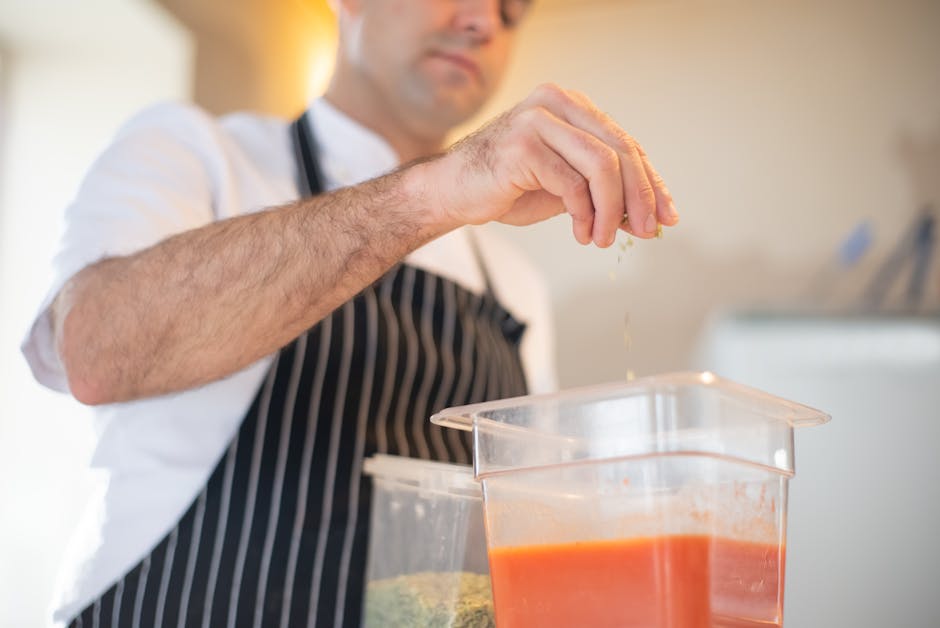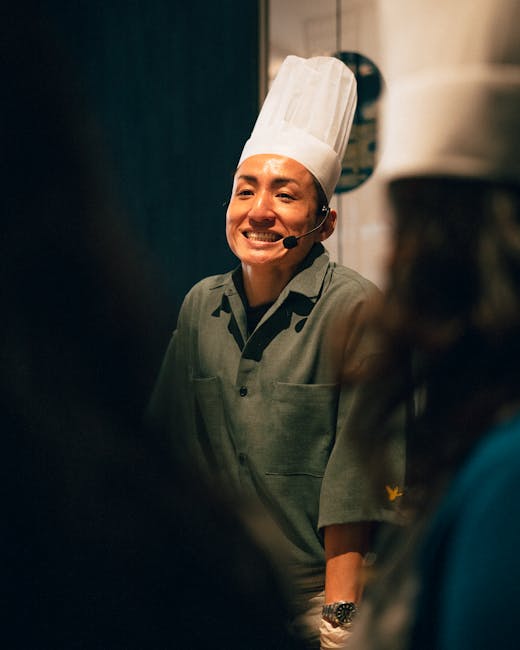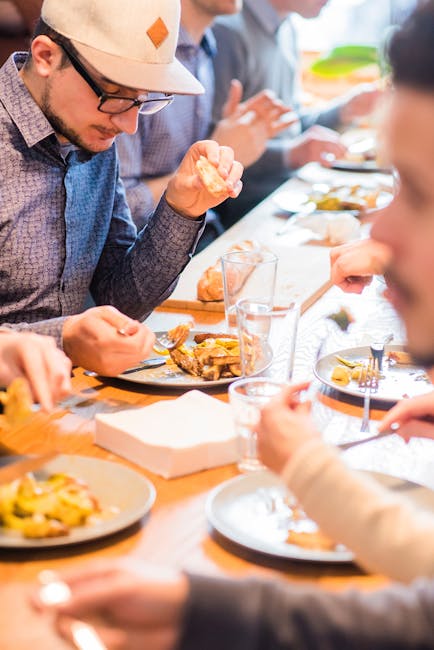Auckland's Culinary Scene Turns Upside Down
Auckland, New Zealand, known for its stunning harbors and vibrant culture, is now making waves in the culinary world with a unique concept: the "Reverse Restaurant." This isn't your typical dining experience. Instead of chefs showcasing their expertise to diners, the tables are turned – literally. Diners, often home cooks or individuals with specialized culinary knowledge, become the instructors, guiding professional chefs through new recipes, techniques, and flavor profiles.
This innovative approach is more than just a novelty; it's a powerful tool for professional development, cultural exchange, and community building. It challenges the traditional hierarchy of the kitchen and fosters a collaborative environment where everyone can learn and grow. The Reverse Restaurant is not a physical restaurant, but rather a series of events and workshops hosted in various locations across Auckland, from professional kitchens to community centers.
The concept has gained significant traction, attracting both seasoned chefs eager to expand their skill sets and enthusiastic home cooks eager to share their culinary passions. It's a testament to Auckland's open-mindedness and its commitment to fostering a dynamic and inclusive food scene.

The Genesis of the Reverse Restaurant
The idea for the Reverse Restaurant originated from a desire to break down the barriers between professional chefs and home cooks. Often, there's a perceived gap in knowledge and skill, with chefs seen as the ultimate authorities in the kitchen. However, home cooks often possess unique culinary traditions, family recipes passed down through generations, and innovative techniques honed through years of experimentation.
The founders of the Reverse Restaurant recognized the value of this untapped knowledge and sought to create a platform where it could be shared. They envisioned a space where chefs could learn from the diverse culinary experiences of everyday people, expanding their palates and broadening their understanding of food. The concept was also designed to empower home cooks, giving them a platform to showcase their skills and contribute to the professional culinary landscape.
The initial events were small and experimental, but the positive response quickly demonstrated the potential of the idea. Chefs were enthusiastic about the opportunity to learn new techniques and flavors, while home cooks felt valued and appreciated for their culinary contributions. Word of mouth spread quickly, and the Reverse Restaurant soon became a sought-after experience for both chefs and diners alike.

How It Works: Diners in the Driver's Seat
The Reverse Restaurant operates on a simple but effective model. Events are typically structured around a specific cuisine, ingredient, or cooking technique. Home cooks or individuals with specialized culinary knowledge are invited to lead workshops or demonstrations, guiding professional chefs through the process of preparing a particular dish or mastering a new skill.
Chefs participate as students, actively engaging with the instructors and learning from their expertise. They ask questions, offer suggestions, and collaborate with the home cooks to refine the recipes and techniques. The emphasis is on mutual learning and collaboration, creating a dynamic and engaging environment for everyone involved.
Here's a typical scenario:
- Theme Selection: The organizers choose a theme, such as "Authentic Italian Pasta Making" or "Spicy Thai Street Food."
- Instructor Recruitment: They identify talented home cooks or individuals with expertise in the chosen theme.
- Chef Participation: Local chefs are invited to participate as students.
- Workshop Execution: The home cook leads a hands-on workshop, guiding the chefs through the recipe and techniques.
- Feedback and Collaboration: Chefs provide feedback and collaborate with the home cook to refine the dish.

Benefits for Chefs: Expanding Culinary Horizons
The Reverse Restaurant offers numerous benefits for chefs, providing them with opportunities for professional development, cultural exchange, and personal growth. Some of the key advantages include:
- Learning New Techniques: Chefs can learn new cooking techniques and recipes from diverse culinary traditions.
- Expanding Palates: They can broaden their understanding of flavors and ingredients, enhancing their culinary creativity.
- Networking Opportunities: The Reverse Restaurant provides a platform for chefs to connect with other professionals and home cooks, fostering collaboration and knowledge sharing.
- Challenging Assumptions: It challenges the traditional hierarchy of the kitchen, encouraging chefs to be open-minded and receptive to new ideas.
- Staying Relevant: In a rapidly evolving culinary landscape, the Reverse Restaurant helps chefs stay current with emerging trends and techniques.
Many chefs have reported that their participation in the Reverse Restaurant has significantly impacted their culinary approach, inspiring them to experiment with new flavors, techniques, and ingredients. It's a valuable opportunity for chefs to step outside their comfort zones and embrace the diversity of the culinary world.

Benefits for Home Cooks: A Platform to Shine
The Reverse Restaurant is equally beneficial for home cooks, providing them with a platform to showcase their skills, share their culinary traditions, and contribute to the professional culinary landscape. Some of the key advantages include:
- Recognition and Validation: Home cooks receive recognition and validation for their culinary expertise.
- Skill Development: They can refine their teaching skills and gain confidence in their ability to share their knowledge.
- Community Engagement: The Reverse Restaurant fosters a sense of community, connecting home cooks with professional chefs and other food enthusiasts.
- Networking Opportunities: It provides opportunities to network with chefs and potentially collaborate on future culinary projects.
- Personal Growth: Sharing their culinary passions can be a deeply rewarding experience, fostering personal growth and a sense of accomplishment.
For many home cooks, the Reverse Restaurant is a dream come true, allowing them to share their love of food with a wider audience and contribute to the vibrant culinary scene in Auckland.

Examples of Success: Culinary Transformations
Several chefs and home cooks have reported significant transformations as a result of their participation in the Reverse Restaurant. For example, one chef who specialized in French cuisine learned traditional Indian spice blending techniques from a home cook, incorporating these new flavors into his menu and creating innovative fusion dishes. Another home cook, who had always been passionate about baking, gained the confidence to start her own small-scale bakery after leading a workshop on sourdough bread making.
Here are a few more examples:
| Participant Type | Before Reverse Restaurant | After Reverse Restaurant |
| Chef Specializing in Italian Cuisine | Limited knowledge of Asian flavors | Incorporated Japanese Umami techniques into pasta sauces |
| Home Cook Specializing in Vegan Desserts | Lacked confidence in professional setting | Started supplying vegan desserts to local cafes |
| Chef Specializing in Seafood | Unfamiliar with traditional Maori cooking methods | Collaborated with Maori community to create a fusion seafood dish |
These success stories demonstrate the transformative power of the Reverse Restaurant, highlighting its ability to foster creativity, collaboration, and innovation in the culinary world.

The Future of Culinary Education: A Reverse Approach?
Auckland's Reverse Restaurant is more than just a passing trend; it represents a fundamental shift in the way we think about culinary education. By challenging the traditional hierarchy of the kitchen and embracing the diverse culinary experiences of everyday people, it's paving the way for a more inclusive, collaborative, and innovative food scene.
Could this model be replicated in other cities around the world? The answer is a resounding yes. The Reverse Restaurant concept is adaptable and scalable, and it can be tailored to suit the unique culinary landscape of any community. Whether it's a series of workshops, pop-up events, or online courses, the possibilities are endless.
As the culinary world continues to evolve, it's essential to embrace new approaches to learning and collaboration. The Reverse Restaurant is a shining example of how we can unlock the untapped potential of home cooks and create a more vibrant and dynamic food culture for everyone.

So, embrace the delicious disruption and let Auckland's innovative spirit inspire your own culinary adventures! Who said Auckland is boring? 😊
-JAFA
Comments
Post a Comment